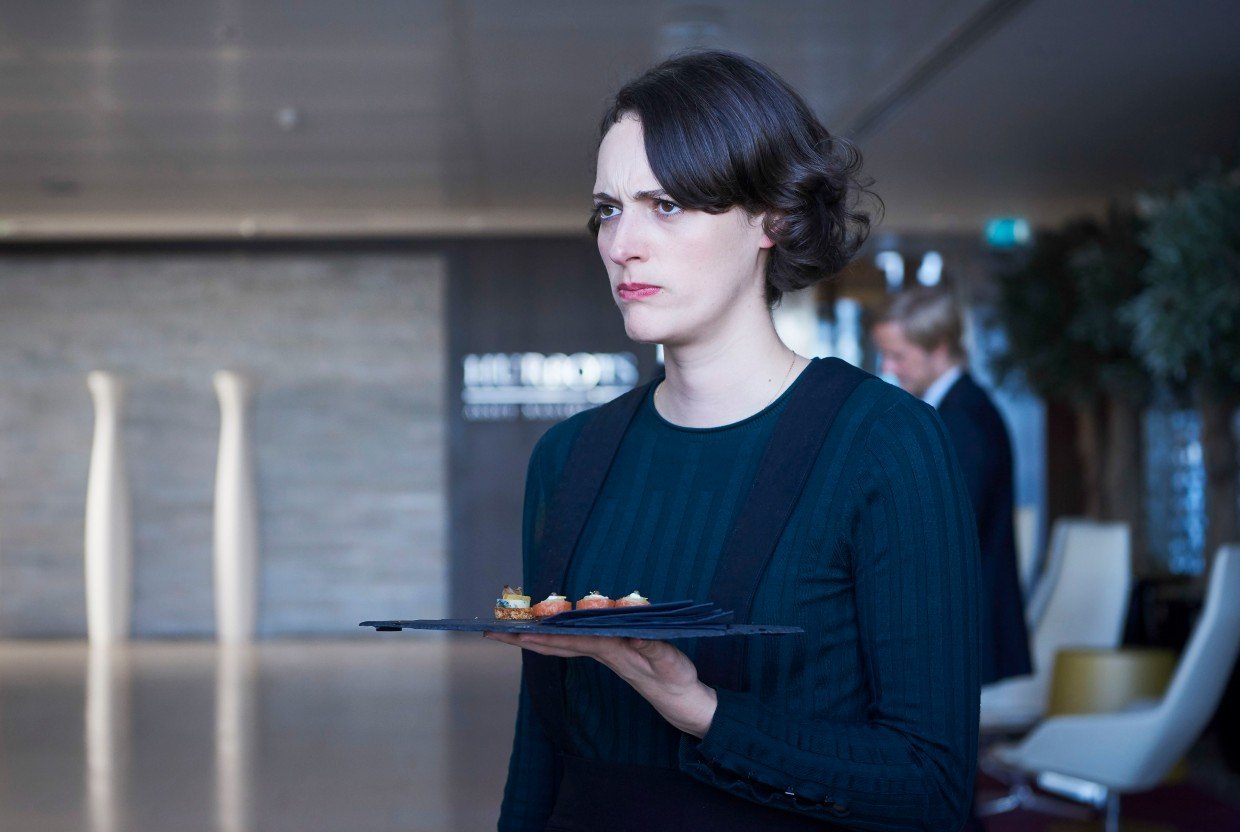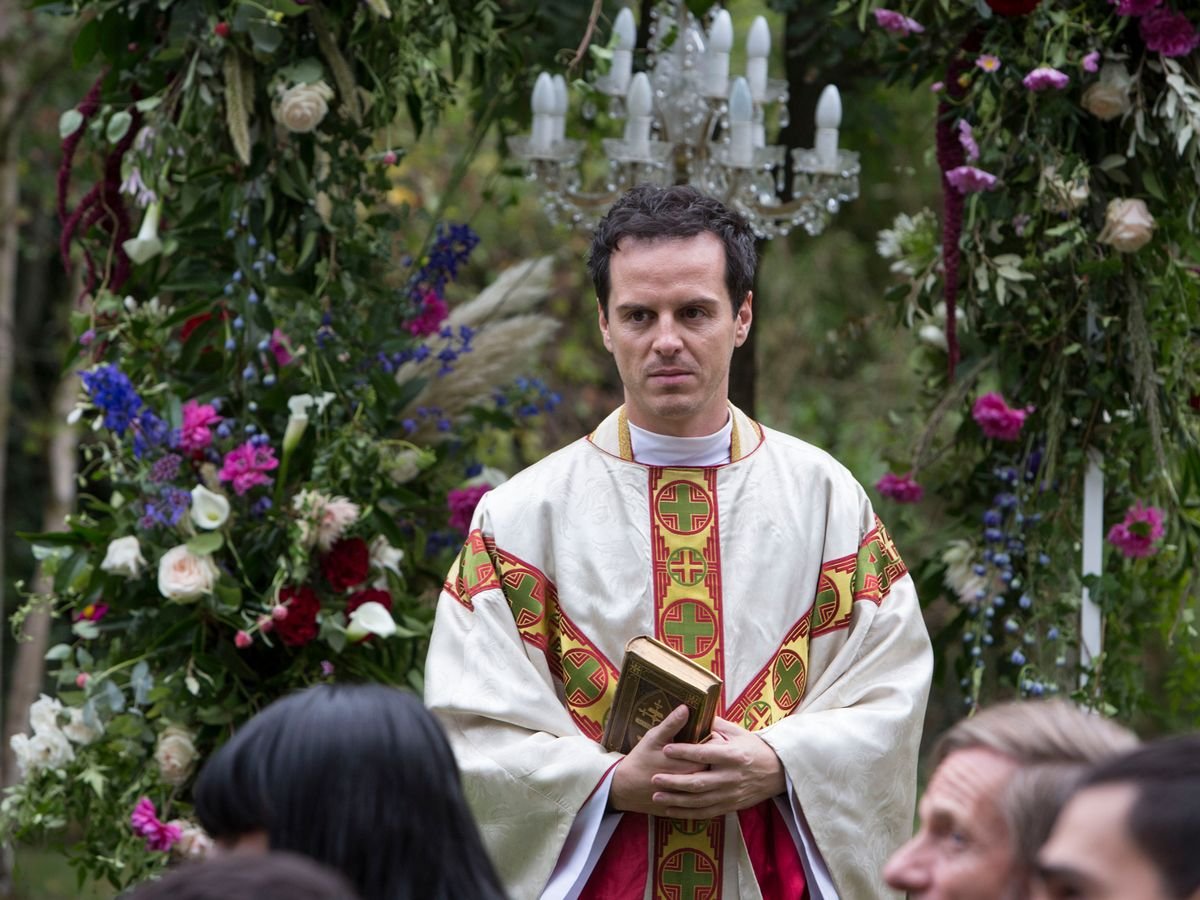Fleabag: the Complex Emotionality of the Modern Woman
Fleabag is not everyone’s cup of tea. I must say that at the get-go. However, the Tv series created by and starring Phoebe Waller-Bridge as an unnamed woman (sometimes referred to as ‘Fleabag’) living in London trying to deal with emotionally unnerving circumstances including her best friend’s and mother’s deaths, a typical evil stepmother, and awkward sexual relationships, is a fascinating endeavour in the genre of television. Fleabag began as a monologue Waller-Bridge wrote and performed in 2013 at the Edinburgh Fringe Festival, and the initial concept was later developed by her as a Tv show of two seasons that was broadcast on BBC Three in agreement with Amazon Studios. I came across the show during a time when I was on a hunt for something ‘fun’ to watch, that would not need a lot of intellectual engagement. I watched one episode in 2017 and gave up. It was too much too handle, and the realities of Fleabag’s life were too close to heart, making me incredibly emotional. I settled for The Big Bang Theory and Modern Family. I decided to return to Waller-Bridge and experiment again recently, curious about her sudden announcement that the show would be ending after its recent second season because the finale was the ‘perfect ending’. Needless to say, it instantly became my cup of tea with its impeccable dialogue posing dark humour, the thematics and the performances by almost every actor.
The character of Fleabag is complicated. The word “fleabag” essentially means “a dirty or shabby person or animal, typically one infested with fleas”, according to the Cambridge English Dictionary, and it is Fleabag’s view of herself, and to a certain extent, the viewer’s perception of her as well. She is severely affected by financial issues, the suicide of her friend Boo (played by Jenny Rainsford), and the guilt of perpetuating it by having sex with Boo’s boyfriend. The volatile relationships she shares with her family, including her sister Claire, her father, step-mother and brother-in-law are telling of the modern woman’s complex emotionality. Maintaining a guinea-pig-themed cafe, mostly to honour Boo’s memory, Fleabag gets by in the day-to-day, but Waller-Bridge carefully carves into the story this complex emotionality she embodies. When we meet Fleabag for the first time she is a struggling entrepreneur trying to salvage her business, but the non-linear narrative combined with flashbacks to her times with Boo paint a picture of a woman who is struggling with much more: the emotions of guilt, loneliness, fear of failure, insecurity and even undiagnosed depression after a traumatic incident. She attempts to fix the situation (especially in the first season) with sexual encounters with different men, which does not prove to be successful as they do not understand her complex existence and emotionality. Someone had identified Fleabag as a “sex addict” and I am skeptical about that association; sex is a coping mechanism for her, and it is not often a situation where she is unable to control her urges. An exceptional piece in which I have encountered sex addiction is Shame (2011) directed by Steve McQueen starring Michael Fassbender and Carey Mulligan, and Fleabag’s sexual escapades are quite tame in comparison. For a sex addict, the act of sexual intercourse is essential and a necessity in the every day, which is not a quality I see in Fleabag. This is not an attempt to defend her use of it as a coping mechanism to control her complex emotionality, however.
Courtesy of Bustle
Other than this aspect of emotionality what drew me most to the show was Fleabag’s relationship with her sister Claire (played by Sian Clifford). They are not close at the beginning of the show, with Claire being a successful businesswoman who is stable in a seemingly happy marriage. They connect throughout Season One over their mutual hatred for their step-mother and Claire’s dissatisfaction about her marriage with Martin (played by Brett Gelman). When Martin tries to kiss Fleabag on Claire’s birthday, the two sisters’ relationship is put to the ultimate test, but Claire decides to take Martin’s side “after what [Fleabag] did to Boo”. The second season starts approximately a year later Claire’s decision to stop talking to her sister, with the family ‘bonding’ over the news of the father’s and the step-mother’s engagement. The glances Claire and Fleabag share make it evident that they have missed each other, and Fleabag’s ability to exactly gauge whether her sister is happy or not from her demeanor speaks volumes of their relationship as two modern women in their mid-thirties trying to survive in an increasingly unfair world. Claire has a miscarriage during the dinner, and when Fleabag takes a bullet for her sister by announcing that it was her own miscarriage, the notion of feminism and the importance of solidarity in relation to female empowerment comes out effortlessly. Martin, not knowing it was his child, exclaims that “it would have stuck if it had wanted to,” and Fleabag punches him, noticing her sister’s obvious pain and frustration. Later, Fleabag encourages Claire to leave her misogynistic husband for her Finnish business partner Klare (this show is funny!).
Andrew Scott (of Moriarty fame) and Kristin Scott Thomas feature in the second season, and especially Scott’s role deserves some serious unpacking. He plays a Catholic priest, but a “cool” and “chic” one who is conflicted about his relationship with God. He practices celibacy and abstinence but is not worried about swearing. During the dinner in the premiere of Season Two, Fleabag and Father have an instant connection when he shows genuine interest in her life, and comes back at her with a “well, fuck you, then.” The episode begins with Fleabag announcing to the audience that it is a “love story”, and we are slowly made to understand that it is the story of Father’s and Fleabag’s relationship. He constantly connects with her on an emotional level, attempting to dissect her complex emotionality. However, he is quick to understand the mutual romantic attraction they share, and tells Fleabag “if I have sex with you, I will fall in love with you.” Later, they do have a sexual encounter and the series ends with each of them declaring their love for each other and Father letting Fleabag know that he is unwilling to go against the church to be with her, because “love is awful and painful.”
Andrew Scott as Father: Courtesy of Irish Mirror
When religion clashes with the only healthy relationship Fleabag has had in a while, the audience is forced to consider the role religion plays in our day-to-day lives. When asked what she wants from Father, Fleabag says she wants someone to “tell her what to do,” which is essentially the function of religion. As she is a self-proclaimed atheist, she is unclear about this function of religion, but as Father becomes a symbol through which she gains access to religiosity she realizes that as much as their romantic relationship is unwarranted, having God tell her what to do all the time is not ideal. Fleabag’s story in the series ends with her embracing the complex emotionality which she apparently got from her mother when she clings on to a sculpture based on her, created by her step-mother.
One final comment on the technique of breaking the “fourth wall” used by Waller-Bridge. The series is considered to be one of the best pieces on television that use this technique effectively, as Fleabag often addresses the audience directly for mere comic effect and/or insight into the story and her character. This show is not the first to use this technique on television, with comedy series like The Office and Modern Family allowing the characters to speak directly to the audience. However, Waller-Bridge’s use of the technique is different and nuanced; it successfully compliments the dark humour and message of the show while breaking the boundaries of the genre itself.
P.S. Oscar winner Olivia Colman plays the evil stepmother/artist. What a performance!

